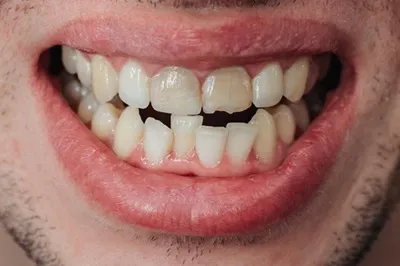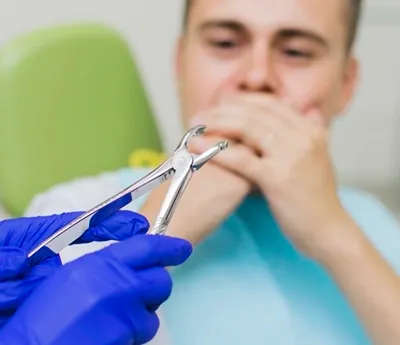Advantages & Disadvantages of Tooth Extraction
2022-08-31
When deciding whether to undergo a tooth extraction, it's natural to feel a mix of curiosity and concern. Understanding the benefits and risks of this dental procedure is essential for making informed decisions about your oral health. Let's explore tooth extraction's advantages and potential drawbacks to shed light on this crucial dental topic.
Understanding Tooth Extraction Procedure: What to Expect Before, During, and After
Before the Extraction
- Assessing Your Dental Health: Your dentist will conduct thorough examinations and X-rays to understand the condition of your tooth and surrounding structures. It helps them plan the extraction procedure accordingly.
- Comfort During the Procedure: Local anesthesia will be administered to ensure you feel little to no pain during the extraction. This step is crucial for a comfortable experience.
- Different Extraction Methods: Depending on your tooth's situation, the extraction may be a simple process or require minor surgical techniques such as incisions and sutures. Your dentist will choose the best method for your situation.
- Preparing for the Procedure: You'll receive instructions on preparing for the extraction, which may include fasting guidelines and medication information.

During and Immediately After the Extraction
- What to Expect: After the extraction, it's normal to experience some discomfort, swelling, and minor bleeding at the extraction site. These are part of the body's natural healing response.
- Managing Your Recovery: Follow your dentist's instructions carefully, especially regarding pain management and dietary restrictions. These steps are crucial for a smooth recovery process.
- Healing Time: While everyone's healing time varies, most people feel better within a week after the extraction. Following post-extraction care guidelines plays a significant role in speeding up the healing process.
Post-Extraction Care
- Keeping Your Mouth Healthy: Maintain good oral hygiene by gently brushing around the extraction site and using any prescribed mouth rinses.
- Taking Your Medications: Follow the medication schedule provided by your dentist, which may include pain relievers and antibiotics to prevent infections.
- Eating Comfortably: Start with soft foods and gradually transition to your regular diet as you feel more comfortable chewing.
- Follow-Up Appointments: Attend all scheduled follow-up appointments with your dentist. These visits allow them to monitor your healing progress and address any concerns promptly.
Understanding what happens before, during, and after tooth extraction and following your dentist's guidance closely can ensure a smooth and successful recovery process. Clear communication with your dental team is key to a comfortable experience and optimal oral health outcomes.
Advantages of Tooth Extraction
- Pain Relief: Extraction provides relief from severe toothaches caused by impacted or severely decayed teeth that may not respond well to other treatments.
- Prevents Further Dental Issues: Extracting problematic teeth helps prevent overcrowding, misalignment, and potential infections that can spread to neighboring teeth.
- Improves Oral Health: Removing severely damaged or infected teeth can improve oral health by eliminating chronic infection and inflammation sources.
- Facilitates Orthodontic Treatment: Tooth extraction may be necessary to create space for orthodontic treatment, such as braces, to align teeth and improve bite function.
- Enhances Aesthetics: Extraction can improve the appearance of your smile by addressing severely decayed, damaged, or misaligned teeth, leading to increased confidence and self-esteem.

Disadvantages of Tooth Extraction
- Potential Misalignment: Extraction can cause neighboring teeth to shift, leading to dental misalignment and potential bite issues if the space is not filled promptly.
- Risk of Infection: The extraction site is susceptible to bacterial infections if proper post-operative care and oral hygiene practices are not followed diligently.
- Changes in Bite Function: Removing certain teeth, especially molars, can affect bite function and chewing efficiency, requiring adjustments or additional dental interventions.
- Bone Loss: Extraction can lead to bone resorption in the jawbone over time, especially if the extracted tooth is not replaced with a dental implant or bridge.
- Cosmetic Concerns: Depending on the location of the extracted tooth, its absence may affect facial aesthetics, particularly if multiple teeth are extracted in visible areas.
Navigating Dental Choices Wisely
While tooth extraction offers significant benefits, it's important to weigh these advantages against potential drawbacks and consider alternative treatments when appropriate. Dental interventions such as implants or orthodontic solutions can address
- Misalignment concerns post-extraction
- Optimal oral function and aesthetics
In conclusion, informed discussions with your dentist about the benefits and risks of tooth extraction empower you to make confident decisions tailored to your unique dental needs. Prioritizing post-extraction care and exploring comprehensive dental solutions contribute to a healthy, confident smile for years to come.
Full-Mouth Extraction: Exploring the Pros and Cons
When considering full-mouth extraction, it's essential to weigh the advantages and disadvantages carefully.
Pros | Cons |
|---|---|
On the positive side, this procedure:
| However, it's important to note that there may be
|
A thorough discussion with your dentist can help you understand these factors better and plan for proper post-extraction care tailored to your needs.
Restoration Options Following Extraction
After a tooth extraction, you have several options to restore your smile and oral function:
- Dental Implants: These are durable replacements that mimic the function of natural teeth and promote jawbone health. They involve surgically placing a titanium implant into the jawbone to support a dental crown.
- Dental Bridges: If you're missing adjacent teeth, bridges offer a fixed solution. They consist of artificial teeth held in place by adjacent natural teeth or implants.
- Partial Dentures: These removable devices replace multiple missing teeth in a dental arch, attaching to adjacent teeth or implants for stability.
- Full Dentures: For complete tooth loss in an arch, full dentures provide removable replacements that restore chewing ability and facial structure.
- Dental Crowns: Damaged or weakened adjacent teeth can be restored with crowns, which are tooth-shaped caps placed over prepared natural teeth or implants.
- Bone Grafting and Pre-prosthetic Surgery: If needed, bone grafting can augment jawbone structure to support implants. Pre-prosthetic surgeries ensure an ideal foundation for successful implant placement and prosthetic fitting.
Consulting with your dentist will help determine the best option based on your oral health needs, preferences, and budget. They will then create a personalized treatment plan to effectively restore your smile and oral function.
Who Needs Tooth Extraction and Why?
Tooth extraction is necessary for various reasons, such as severe decay, impacted wisdom teeth, orthodontic considerations, infection control, and compromised immune systems.
1. Severe Tooth Decay or Damage: Individuals with teeth that have extensive decay or damage beyond repair may require tooth extraction. This condition often leads to persistent pain, sensitivity, and risk of infection, making extraction necessary to alleviate discomfort and prevent further dental complications. 
2. Impacted Wisdom Teeth: Impacted wisdom teeth fail to erupt properly due to lack of space or improper alignment, which can cause pain, swelling, and damage to surrounding teeth. Extraction of impacted wisdom teeth is commonly recommended to relieve discomfort and prevent potential oral health issues.
3. Orthodontic Reasons: In some cases, tooth extraction is necessary for orthodontic treatment, especially for individuals undergoing braces. Extraction may be required to create space for proper teeth alignment, ensuring optimal bite function and overall dental health.
4. Infection Control: Teeth affected by severe infections, such as abscesses or periodontal disease, may need extraction to prevent the spread of infection to other teeth and surrounding tissues. Removing the infected tooth helps control the spread of bacteria and promotes oral health.
5. Compromised Immune System: Individuals with compromised immune systems, such as those undergoing chemotherapy or with certain medical conditions, may require tooth extraction to reduce the risk of systemic infections stemming from severely diseased teeth.
Consulting with a dental professional is crucial to determine the need for extraction based on individual dental health assessments and to ensure appropriate treatment planning for optimal oral health outcomes.
FAQs
- What are the side effects of having teeth removed at age 23?
Side effects of tooth removal at age 23 may include temporary changes in speech and chewing, potential aesthetic impact on facial appearance, gradual bone resorption in the jawbone, orthodontic considerations, emotional effects on self-esteem, and the need for dental prosthetics for restoration and function. Discussing these concerns with your dentist can help address potential issues and ensure proper post-extraction care for optimal healing and oral health.
- Why is it bad to have teeth extracted for braces?
Having teeth extracted for braces can be problematic because it can lead to changes in facial appearance, affect speech, and alter the bite. It's important to discuss alternative orthodontic options with your dentist or orthodontist to minimize these potential issues.
- What are the benefits of same-day wisdom tooth extraction?
Same-day wisdom tooth extraction offers the advantage of completing the procedure in a single visit, reducing overall recovery time, minimizing discomfort, and lowering the risk of complications associated with delayed extraction.
- What are the disadvantages of deep cleaning teeth?
Disadvantages of deep cleaning (scaling and root planning) may include temporary tooth sensitivity, gum soreness, and, in rare cases, potential risks of infection or damage to the tooth's root surface. However, these risks are minimal when performed by a skilled dental professional, and the benefits of improved gum health typically outweigh the temporary discomfort.
Contact your Walnut Creek dentist, Dr. Darvishzadeh, at Walnut Creek Dental to learn more about tooth extraction.
Resource:
How Does Wisdom Tooth Extraction Work?
*Neither this nor any other content in this media is meant to prescribe, recommend, or prevent any treatment or procedure. We highly recommend that you get the advice of a qualified dentist or other medical practitioners regarding your specific dental condition.*
Subscribe To Our Newsletter
Get Updates And Learn From The Best